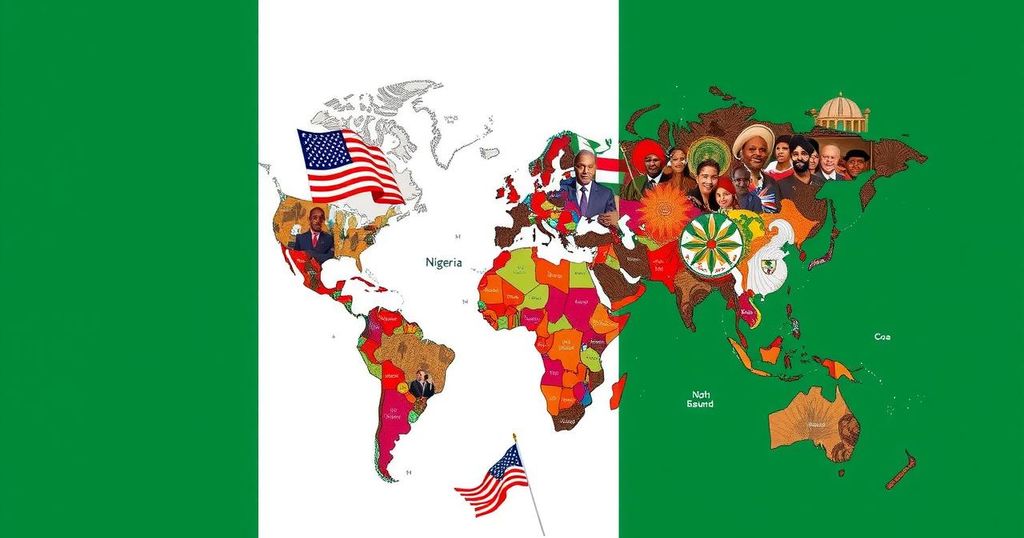The article examines the challenges of accepting electoral outcomes, particularly through the lens of Nigerian experiences contrasted with the recent U.S. elections. It addresses the significance of political integrity, the necessity for leaders to promote unity, and societal divides that persist in both nations, urging a shift towards reconciliation post-election.
The recent conclusion of the U.S. presidential election has brought to light the challenges of reconciling with electoral outcomes, particularly for those whose preferred candidates did not succeed. Drawing from personal experiences in Nigeria, where electoral disappointment is familiar, it becomes imperative to reflect on the state of political transitions, especially in light of the turbulent nature of both Nigerian and American elections.
In Nigeria’s previous elections, I found myself advocating for Goodluck Jonathan, who ultimately lost to Muhammadu Buhari. Despite acknowledging Buhari’s shortcomings, I believed Jonathan was the more qualified candidate. As cataclysmic changes unfolded during Buhari’s administration, I also invested interest in the candidacy of Peter Obi in the 2023 elections, contributing financially to his campaign amidst hopes for significant reform. Unfortunately, Obi’s defeat felt unjust to many Nigerians, mirroring frustrations seen in the U.S. after the 2020 elections, where political divides remained persistent.
As the newly elected president of Nigeria, Bola Tinubu faced accusations of electoral malpractice, similar to the controversies surrounding former U.S. President Donald Trump. Critics argue that despite numerous allegations, both leaders emerged victorious in contentious political landscapes. Legal challenges faced by both parties have raised concerns over the integrity of governance in both countries.
The nadir of these elections reflects broader systemic issues. In Nigeria, socioeconomic conditions deteriorated under Tinubu’s leadership, leading to unprecedented economic strife, while in the U.S., the divide between Trump supporters and those opposing him highlights continuing societal fissures. Leaders in both nations must strive for humility and mutual respect to mitigate tensions and foster a sense of unity amongst divided constituents.
While a change in personal attitude is essential for healing, it is equally critical that leaders fulfill the promises of unity made during their campaigns. The ability of Trump or any leader to mend societal rifts comes into question, as skepticism among the populace looms. Ultimately, as citizens, we must engage with the democratic process and confront the realities of our political frameworks.
The article reflects on a Nigerian perspective regarding the recent U.S. presidential election and draws comparisons between Nigeria’s political environment and America’s electoral challenges. The author, Anthony Akaeze, recounts personal experiences from Nigeria’s elections while analyzing how electoral integrity, divisive politics, and subsequent governance outcomes significantly affect national sentiments. This provides insights into how societies, regardless of geographical differences, deal with the aftermath of electoral defeats, political controversies, and calls for unity in politically charged climates.
This analysis underscores the difficulties faced by individuals reconciling with electoral outcomes in both Nigeria and the United States. It highlights the need for humility and accountability from those in power. As political factions continue to sustain deep divides, the onus is on leaders to translate their promises of unity into tangible action. The way forward demands that both leaders and citizens undertake a collective approach to healing and bridging societal rifts, fostering a more harmonious future for all. Words spoken during campaigns must transform into actionable policies that resonate with the diverse fabric of society, nurturing a climate of hope and cooperation among citizenry.
Original Source: baptistnews.com






